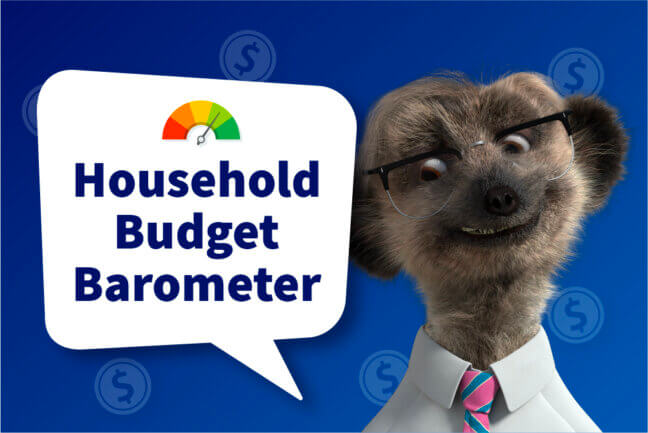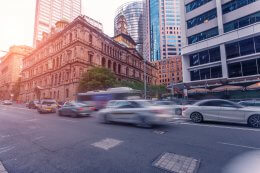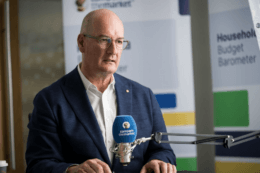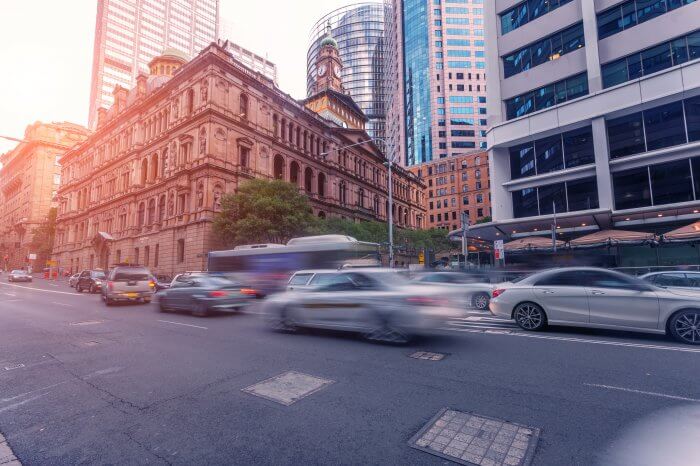
- 30% of Australian adults admit that their savings are going backwards
- Half aren’t able to save as much as they usually do because they’re dipping into their savings to cover everyday costs
- 9% of Australians aren’t budgeting at all
- Nearly 50% of Australians don’t invest their money
The plight of families grappling with rising costs has been laid bare in a new report by Compare the Market, showing that 61% of Australian households are only just getting by as prices soar across the board.
Compare the Market’s first-ever ‘Household Budget Barometer’, powered by research from global data and insights company, Pureprofile, boasts extensive international research from more than 3,000 respondents across Australia, Canada and the USA and found that few had been immune to cost of living pressures.
Worryingly, more than a quarter of Aussie adults (26.3%) admit that their savings are going backwards, indicating that they’re chewing into their hard-earned savings to get by.
Compare the Market’s General Manager of Money, Stephen Zeller, said the report held a mirror to a nation dealing with surging inflationary pressures and cash rate rises.
“There has been unprecedented financial change in the last 12 months and unfortunately the turmoil doesn’t look likely to end anytime soon,” Mr Zeller said.
“A $500,000 variable mortgage holder has already seen an extra $1,209 added to their monthly repayments since the RBA started chasing its inflation target in May last year.
“On top of that, we’re expecting electricity price hikes of up to 25% for those on default plans, when the new Default Market Offer and Victorian Default Offer take effect on 1 July.
“With households getting hit at every corner, it’s no surprise 94% say they’ve felt the difference.”
“At the heart of the cost of living issue, is uncertainty. Uncertainty in how consumers will be impacted day-to-day, and how it will affect their future plans. The same goes for businesses that are trying to forecast in a precarious economic time. This is why the information unveiled in the Budget Barometer is so meaningful, as we’re all looking to closely understand evolving consumer needs.” said Pureprofile CEO, Martin Filz.

Pain at the bowser, checkout and power point
The cost of groceries was the biggest concern for Australians, with two-thirds of those surveyed anxious about their trip to the supermarket.
Rising electricity prices are also keeping Aussies up at night, as well as the cost of fuel, but the other big-ticket items varied between generations.
Many Aussies hesitant to reduce the price they pay, despite rising costs
Despite rising costs, almost half of Australians (45%) said they hadn’t shopped around for a better deal to try and save during the past 12 months.
“A lot of people are spending more than they need to without realising it or wrongly assume that researching alternatives will take too much time,” Mr Zeller said.
“Lower income earners were less likely to shop around for better deals, despite standing to gain more from the process than people with larger paypackets to spend. “What could be small change for some households could make a world of difference for people doing it tough.”
Younger Generations rely heavier on the Bank of Mum and Dad to break the property market
Millennials and Gen Z were more likely to get help from their parents and family to purchase their first home. More than 30% of Gen Z and 26% of Millennials said their family helped contribute to the deposit. Meanwhile, more than 50% of Gen X and Baby Boomers said they had no help from family members whatsoever.
“While each generation has faced different hurdles to homeownership, broad consensus is that young people today have it the hardest as climbing house prices continue to outpace the size of deposits,” Mr Zeller said.
Education crucial to improve hip pocket health
With nearly half of Australians learning money habits from their parents, and a quarter of professing to be “self-taught”, Mr Zeller said improving financial literacy should be made a top priority.
“People without an education in budgeting basics are at a huge disadvantage when living costs rise,” Mr Zeller said.
“We urge people not to be passive when they receive bills and renewal notices, to check and make sure they’re not paying for unnecessary services, fees or add-ons.
“Whether your mortgage repayments are going up, you’ve received a higher-than-expected bill or you want to ensure you’re not paying more than you need to for your insurance or fuel, it’s worth taking time to compare your options.”
For more exclusive insights, read Compare the Market’s Budget Barometer report in full here.
For more information, please contact:
Chris Ford | 0411 560 116 | [email protected]
Compare the Market is a comparison service that takes the hard work out of shopping around. We make it Simples for Australians to quickly and easily compare and buy insurance, energy, travel and personal finance products from a range of providers. Our easy-to-use comparison tool helps you look for a range of products that may suit your needs and benefit your back pocket.







